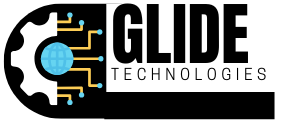Table of Contents
ToggleIn the fast-paced world of SaaS, standing out is as crucial as your morning coffee. With countless companies vying for attention, mastering SEO isn’t just a nice-to-have; it’s a must-have. Imagine your software solution being found by eager customers instead of getting lost in the digital abyss. It’s like throwing a party and forgetting to send out the invites—nobody’s showing up!
Understanding SEO For SaaS Companies
Effective SEO stands at the forefront of success for SaaS companies. Mastering it enhances visibility and facilitates customer discovery in a crowded market.
Importance of SEO in SaaS
SEO fuels organic traffic, which significantly benefits SaaS businesses. Potential customers often search for solutions online, making it crucial for companies to rank prominently on search engines. Higher rankings lead to increased website visits and potential conversions. In fact, data shows that over 70% of users click on the first page of search results. Optimizing websites for relevant keywords ensures that offerings align with searches. Companies that leverage SEO effectively gain a competitive advantage, setting themselves apart from competitors.
Common SEO Challenges in SaaS
Navigating SEO challenges can be complex for SaaS companies. Competition remains fierce, with numerous players targeting the same keywords, making differentiation difficult. Frequent changes in algorithms can disrupt ranking strategies, causing uncertainty. Additionally, understanding customer intent poses hurdles since SaaS buyers often seek specific solutions tailored to their needs. Limited resources also impact smaller companies, restricting their ability to implement advanced SEO tactics. Many struggle with creating content that resonates with potential clients while also driving traffic. Addressing these challenges requires strategic planning and consistent effort.
Keyword Research Strategies
Keyword research forms the backbone of an effective SEO strategy for SaaS companies. Targeting the right keywords drives visibility and customer engagement.
Identifying Target Keywords
To identify target keywords, consider the specific needs and pain points of the target audience. Utilize tools such as Google Keyword Planner and Ahrefs to discover keyword search volume and competition. Analyzing competitors’ keywords provides insights into successful strategies. Focus on keywords that align with product offerings and frequently searched terms. Incorporate both broad and niche keywords into the research process. Regularly adapting to search trends ensures relevance in evolving markets.
Long-Tail Keywords for SaaS
Long-tail keywords play a crucial role in attracting targeted traffic. These keyword phrases, typically containing three or more words, cater to specific user intents. Examples include “best project management software for small teams” or “cloud accounting software for startups.” By targeting long-tail variations, SaaS companies can rank for less competitive phrases, increasing chances of conversion. Research indicates that long-tail keywords often lead to higher conversion rates due to their specificity. Moreover, they help capture users closer to making a purchasing decision.
On-Page SEO Tactics
On-page SEO tactics are vital for improving search rankings and enhancing user experience. By focusing on these strategies, SaaS companies can optimize their online presence effectively.
Optimizing Landing Pages
Landing pages require precise optimization to capture user interest and convert visitors. Start with relevant keywords in the title tags, ensuring they match search queries. Engage users with compelling meta descriptions that summarize the page content. Include clear calls to action that guide potential customers towards desired actions. Visual elements, like images and videos, should complement the text and improve engagement. Structured data enhances visibility in search results, providing rich snippets that attract clicks. Testing page speed is crucial, as faster load times result in lower bounce rates and higher satisfaction.
Content Marketing for SaaS
Content marketing serves as a cornerstone for SaaS companies aiming to establish authority and drive organic traffic. Creating valuable, informative blog posts addresses customer pain points and positions the company as an expert. Utilizing various formats, such as case studies, webinars, and infographics, caters to diverse audience preferences. Regular updates to existing content maintain relevance and improve search rankings. Implementing internal linking strategies enhances site navigation while improving SEO. Promoting content through social media amplifies reach and encourages engagement, ultimately leading to increased conversions.
Off-Page SEO Techniques
Off-page SEO enhances a SaaS company’s online presence and credibility. Effective off-page strategies increase visibility and drive organic traffic, vital for competing in a crowded market.
Building Quality Backlinks
Quality backlinks are essential for improving authority and search rankings. Securing links from reputable industry sources significantly boosts a website’s credibility. Guest posting on relevant blogs allows SaaS companies to showcase expertise and attract attention. Collaborating with influencers can generate authoritative links and foster relationships in the industry. Utilizing tools like Moz or SEMrush aids in identifying valuable backlink opportunities, streamlining the outreach process.
Leveraging Social Media
Social media enhances visibility and user engagement. Establishing a strong presence on platforms like LinkedIn and Twitter attracts potential customers and drives traffic. Sharing valuable content consistently encourages users to engage and share, fostering organic growth. Engaging with followers through comments or messages builds community and trust. Promoting content through social media ads can target specific audiences, maximizing reach and increasing conversions.
Measuring SEO Success
Measuring SEO success involves tracking specific metrics and utilizing effective tools. These elements provide insights into the effectiveness of strategies and highlight areas for improvement.
Key Metrics to Track
Traffic volume represents one of the most significant metrics, as an increase in organic visitors indicates successful SEO efforts. Conversion rates measure the effectiveness of traffic at turning visitors into customers. Bounce rates reflect user experience; lower bounce rates suggest relevance and engagement with content. Keyword rankings help determine visibility on search engines; consistent improvements indicate effective keyword strategies. Finally, backlinks illustrate authority; a higher number of quality links correlates with improved search rankings.
Tools for SEO Analysis
Google Analytics offers comprehensive insights into website traffic and user behavior. This tool tracks key metrics, helping to identify which content drives conversions. SEMrush allows users to conduct in-depth keyword analyses and competitive research, providing valuable data on potential targeting shifts. Moz Pro delivers insights into link building and page optimization, offering suggestions for improvements. Ahrefs focuses on backlink monitoring and competitive analysis, helping to refine strategies. Utilizing these tools contributes to a well-rounded SEO approach, enabling SaaS companies to measure success effectively.
SaaS companies must prioritize SEO to thrive in a competitive landscape. By implementing effective strategies that enhance visibility and attract potential customers, they can significantly boost their organic traffic.
Focusing on keyword research and on-page optimization lays a solid foundation for success. Engaging content and strategic off-page techniques further amplify their reach and authority.
Regularly measuring key metrics ensures that companies stay on track and continuously refine their approach. Embracing these SEO practices not only drives growth but also establishes a strong online presence that resonates with the target audience.



